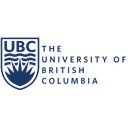Explore quantum mechanics through hands-on simulations and real-world examples, mastering core principles in this engaging introduction.
Explore quantum mechanics through hands-on simulations and real-world examples, mastering core principles in this engaging introduction.
Dive into the fascinating world of quantum mechanics with this accessible course from UBC. Designed to bridge theoretical concepts with practical applications, this course introduces core quantum principles, mathematical frameworks, and real-world applications. Through browser-based activities and PhET simulations, students explore the limitations of classical mechanics and discover quantum phenomena. Perfect for those with basic physics knowledge, the course provides a solid foundation in quantum mechanics while emphasizing practical understanding and visualization.
Instructors:
English
English
What you'll learn
Master fundamental principles of quantum mechanics
Compare and contrast classical and quantum mechanical approaches
Utilize interactive simulations for practical understanding
Apply mathematical frameworks to quantum systems
Solve quantum mechanics problems using step-by-step methods
Understand key quantum mechanical terms and equations
Skills you'll gain
This course includes:
PreRecorded video
Graded assignments, exams
Access on Mobile, Tablet, Desktop
Limited Access access
Shareable certificate
Closed caption
Get a Completion Certificate
Share your certificate with prospective employers and your professional network on LinkedIn.
Created by
Provided by

Top companies offer this course to their employees
Top companies provide this course to enhance their employees' skills, ensuring they excel in handling complex projects and drive organizational success.





There are 7 modules in this course
This comprehensive introduction to quantum mechanics covers fundamental concepts, mathematical foundations, and practical applications. The curriculum progresses from basic principles to advanced topics, utilizing interactive simulations and real-world examples. Students learn through a combination of theoretical instruction and hands-on activities, developing both conceptual understanding and practical problem-solving skills. The course emphasizes the relationship between classical and quantum mechanics while exploring modern applications.
Introduction to Quantum Mechanics
Module 1
Classical vs. Quantum Mechanics
Module 2
Fundamentals of Quantum Mechanics
Module 3
Mathematical Representation
Module 4
Practical Examples
Module 5
Glossary
Module 6
Resources and Further Reading
Module 7
Fee Structure
Instructors

1 Course
Quantum Education Innovator and STEM Outreach Leader
Ella Meyer serves as the Quantum Computing Outreach Coordinator at UBC Geering Up, where she combines her astronomy background with a passion for making quantum physics accessible to young learners. After earning her Bachelor of Science in Astronomy from UBC in 2020, where she led the UBC Physics Society as president, she has pioneered several innovative quantum education initiatives. Her work includes coordinating week-long quantum computing summer camps for grades 10-12, developing the Qubits and Bytes workshops for grades 6-7, and working with the Quantenkoffer, a sophisticated quantum photonics lab-in-a-box that demonstrates Nobel Prize-winning experiments. She collaborates with fellow graduate students to deliver lectures and hands-on experiments across various institutions, from UBC's Stewart Blusson Quantum Matter Institute to the Argonne National Library in Chicago. Through her role in the Diversifying Talent in Quantum Computing initiative, she has been instrumental in developing quantum computing curriculum for Ontario high schools, working to integrate quantum concepts into existing science programs while making the material accessible for both teachers and students.

1 Course
Science Education Expert and Quantum Computing Curriculum Innovator
Conan Lee serves as a Quantum Computing Curriculum Planner at UBC Geering Up, where he combines his multidisciplinary background in physics, psychology, and science education to develop accessible quantum computing educational materials. His academic credentials include a B.Sc. in Physics from the Hong Kong University of Science and Technology, an M.A. in Psychology from the Chinese University of Hong Kong, and an M.A. in Science Education from the University of British Columbia. His research on science education has gained recognition, including winning first place for his graduate poster presentation on "Knowledge Co-construction in YouTube Comments on Science Videos: Embedding Popular Culture in STEM" at the 7th STEM in Education Conference
Testimonials
Testimonials and success stories are a testament to the quality of this program and its impact on your career and learning journey. Be the first to help others make an informed decision by sharing your review of the course.
Frequently asked questions
Below are some of the most commonly asked questions about this course. We aim to provide clear and concise answers to help you better understand the course content, structure, and any other relevant information. If you have any additional questions or if your question is not listed here, please don't hesitate to reach out to our support team for further assistance.



